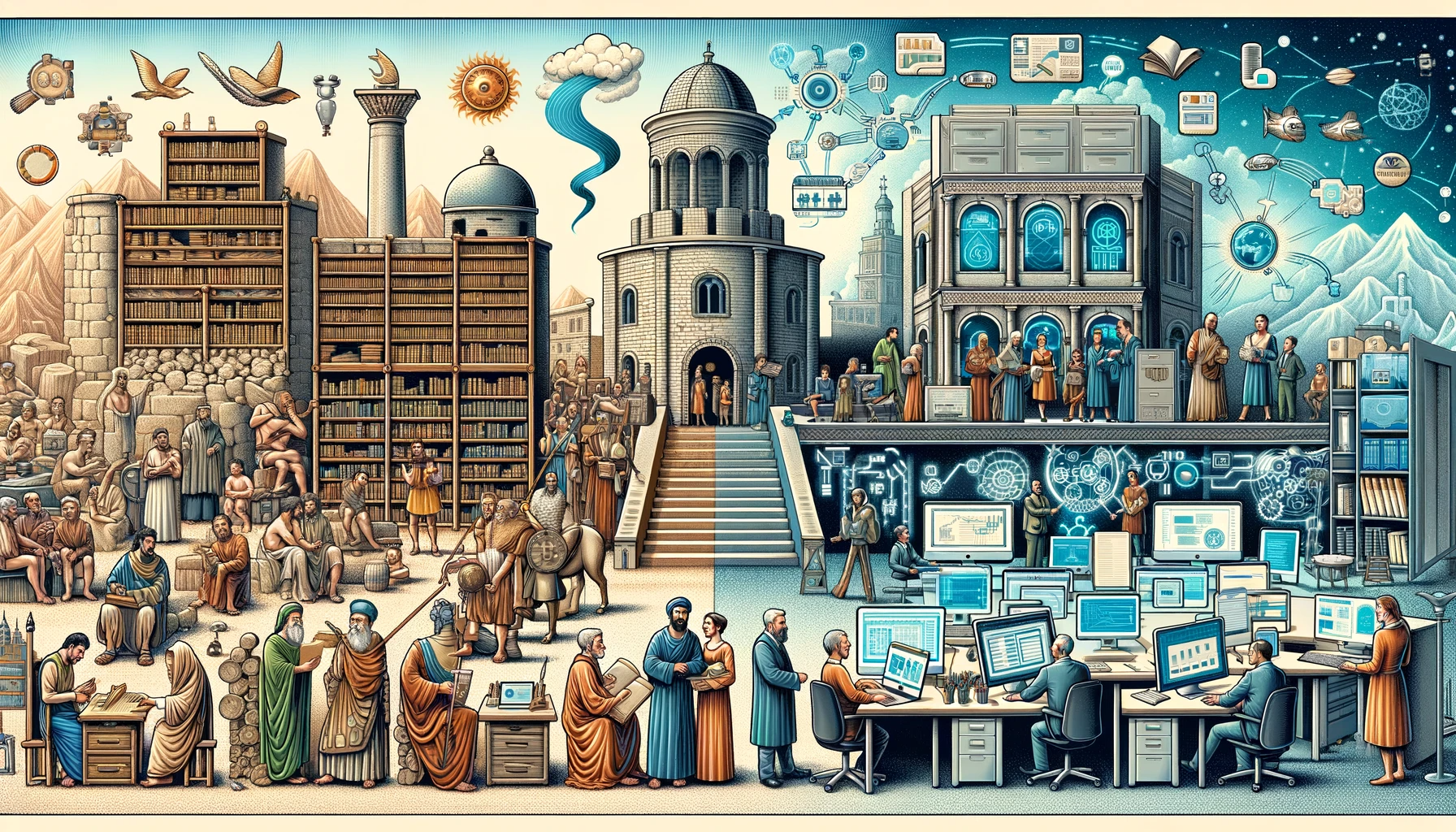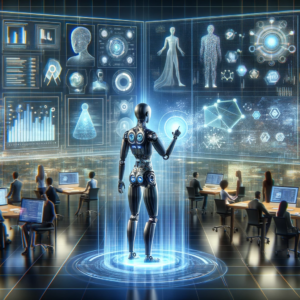The Evolution of Knowledge Management: Tracing Its Journey Through Time
Introduction
Welcome to the first edition of our weekly blog series where we dive into the fascinating world of Knowledge Management (KM)! Today, we’re starting at the very beginning – exploring how KM has evolved over the years. This journey is not just about technology; it’s about the changing ways we understand, share, and utilize knowledge in organizations and societies.
The Early Beginnings: Pre-20th Century
Believe it or not, Knowledge Management isn’t a product of the digital age. Its roots can be traced back to ancient civilizations. The creation of libraries in ancient Mesopotamia and the scriptoriums in medieval monasteries were early forms of KM. They represented the first efforts to collect, categorize, and disseminate knowledge.
The Industrial Revolution: Knowledge Takes Flight
The Industrial Revolution marked a significant shift. With rapid industrialization and the rise of complex organizational structures, managing knowledge became crucial. Companies started to realize that intellectual assets were as valuable as physical ones. This era saw the birth of training programs and organizational libraries – early attempts at formalizing KM.
The Mid-20th Century: The Rise of Information Science
The mid-20th century witnessed a surge in the field of information science. This was a period marked by the development of theories around information needs and uses. Libraries and information centers evolved, paving the way for modern KM practices.
The Digital Revolution: A New Era for KM
The advent of the digital era in the late 20th century revolutionized KM. Computers and the internet transformed how we store, access, and distribute knowledge. Document management systems and intranets became standard in organizations. The focus shifted from managing physical repositories of knowledge to digital ones.
The 21st Century: AI and Beyond
Today, we’re in an age where artificial intelligence (AI), machine learning, and cloud computing are taking KM to new heights. AI algorithms help in organizing and retrieving knowledge more efficiently than ever before. Cloud computing allows for unprecedented levels of collaboration and accessibility. We’re witnessing the democratization of knowledge, making it accessible to a wider audience.
Conclusion
From ancient libraries to AI-driven databases, the evolution of Knowledge Management reflects our relentless pursuit of more efficient ways to handle information. As we move forward, the question isn’t just about how we manage knowledge, but also about how we continue to innovate and adapt in a world where the only constant is change.
Join us next week as we delve into the essentials of effective technical writing – a skill crucial in the world of KM!
Scott




